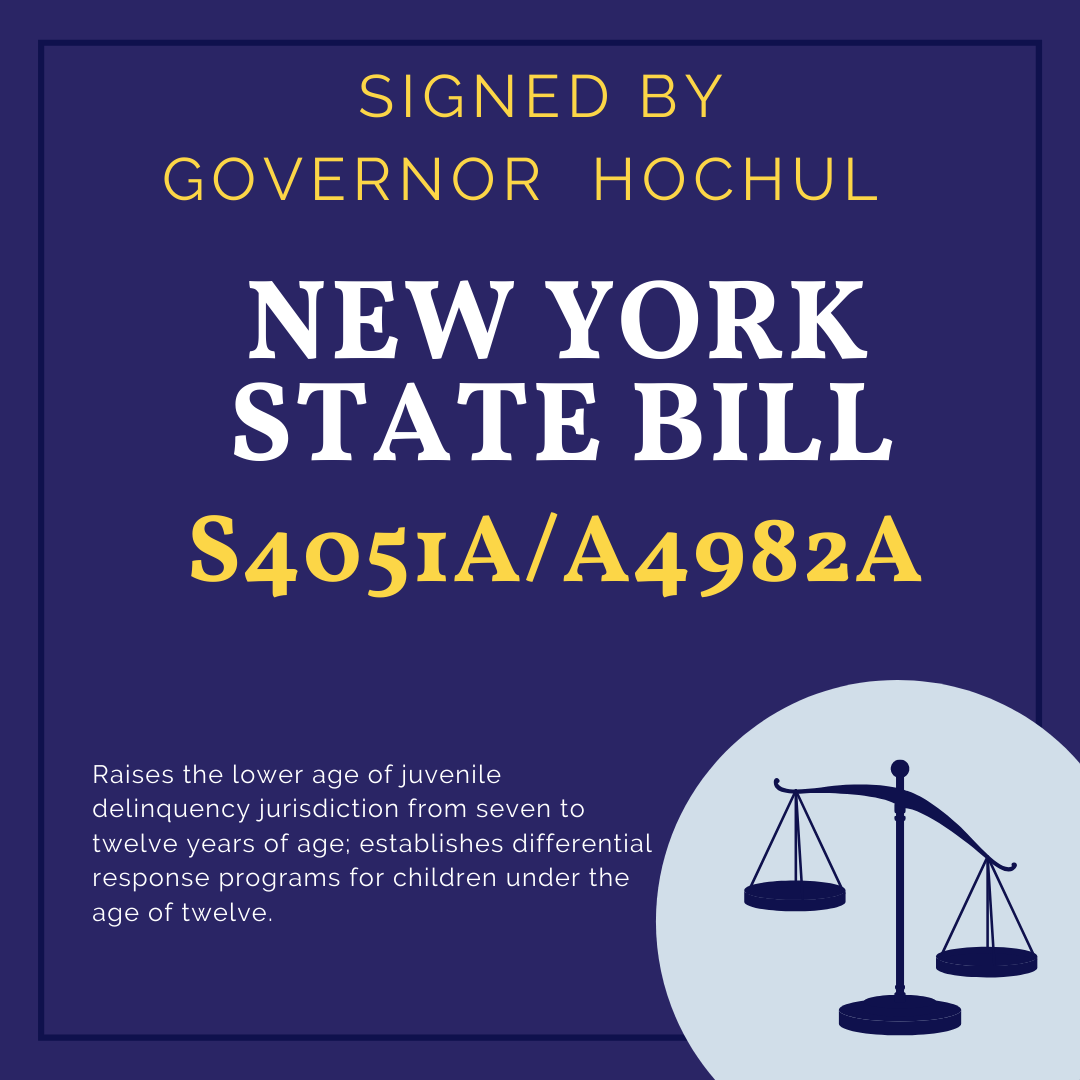On December 29,2021, Governor Hochul signed into law legislation that raises the lower age of juvenile delinquency jurisdiction from seven to twelve years of age; establishes differential response programs for children under the age of twelve.
"Section one of the bill would by amend the definition of delinquent" to mean a person at least twelve years of age. Section two of the bill would amend the definition of "designated felony act" by raising the lower age of allegedly committing a designated felo- ny act to at least twelve. Section three of the bill would raise the restriction on detention in a secure detention facility of a child from under ten years old to under thirteen years old. Section four of this bill would raise the lower age to at least twelve for fingerprinting of certain alleged juvenile delinquents. Section five would raise the lower age to at least twelve in, instances where the alleged act committed by a juvenile delinquent constitutes an A or B felony for probation services to certify to the division of crim- inal justice services and the appropriate law enforcement agency that the potential respondents fingerprints have been taken. Section six would remove the age requirement for probation to require a respondent to make restitution or perform services for the public good. Section seven would remove the age requirement for restitution at the conclusion of a dispositional hearing. Section eight would make various conforming changes to raise the lower age to twelve which relates to the destruction of fingerprints, palm prints, photographs, and copies thereof, and all information relating to such allegations obtained by the division of criminal justice services, except in instances where the respondent is adjudicated a juvenile delinquent for a class A or B felony. Section nine would provide preventative services for children under the age of twelve whose behavior but for their age would bring them within the jurisdiction of the family court, and the local social services official determines that the child is at risk of being placed in foster care. Section ten would require local social services districts to establish differential response programs for children under twelve whose behavior but for their age would bring them within the jurisdiction of the family court. Such programs would be required to be approved by the Office of Children and Family Services (OCBS) and utilize appropriate assessments and determine what, if any, services should be provided to such youth to help reduce future interaction with the juvenile justice and child welfare systems. This section would also restrict access to the records created as part of such programs. Expenditures made by a local social services district pursuant to a differential response program would be required to be reimbursable from the annual appropriations relating to preventive services, family support services, and supervision and treat- ment services for juveniles. Lastly, this section would require OCFS to prepare an annual report on the differential response programs. Section eleven would expand the eligibility for "family support services programs" to include helping to reduce future interactions with the juvenile justice system and or child welfare system for children under 12 whose behavior but for their age would bring them within the juris- diction of the family court. Section twelve would expand training programs for police officers whose main responsibilities are juveniles and the laws pertaining thereto, to include training in how to address children under twelve years of age whose behavior but for their age would bring them within the jurisdic- tion of the family court. Section thirteen would establish the effective date."

